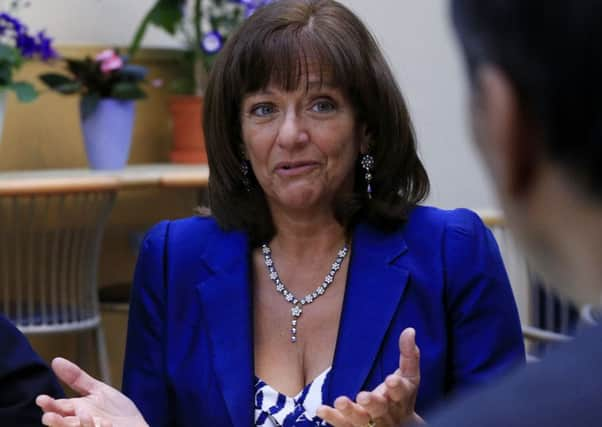Ros Altmann: It's time to get tough on ageism at work


Its report – published just last week – concluded that ageism in the jobs market, especially for women, remains a significant problem, with many employers and recruiters failing to give them a fair chance of finding work.
The shocking findings echo those I discovered as Business Champion for Older Workers in 2015-2016.
Advertisement
Hide AdAdvertisement
Hide AdIt seems many of the same problems persist, despite the Government’s good intentions to improve employment opportunities for all ages.
Retention of older workers has improved somewhat (with record numbers of older people in work), but there are still significant problems in retraining and recruitment.
This leaves around one million over-50s wanting to work but unable to find a job. Yet increasing numbers of older people – especially women – want or need to work longer as state pension age is rising and traditional pensions are receding.
If these workers are just written off by employers, then they will lose the opportunity to improve their later life.
Advertisement
Hide AdAdvertisement
Hide AdMore older women than ever before tend to be single, and cannot rely on a partner to support them in later life.
So, staying in work is often vital to help them avoid poverty in old age.
This is a huge waste of resources.
With an ageing population and lower immigration, making the most of home-grown talent is increasingly important.
The more older people can keep working, the more their income can be boosted both now and in future.
Advertisement
Hide AdAdvertisement
Hide AdLonger working life also benefits the economy, increasing spending power, which benefits younger people too.
Employers can help by ensuring their recruitment processes are genuinely age-blind.
They can also ensure their older staff are re-skilled, perhaps offering ongoing training, lifelong re-skilling and mid-life career reviews.
Sometimes, older workers face the dilemma of needing to care for elderly or aging relatives and stop work to look after loved ones.
Advertisement
Hide AdAdvertisement
Hide AdThen, if they want to return to work, discrimination in recruitment can be an insurmountable barrier.
This should be illegal, but too often recruiters or employers seem to find ways round the law – or they just disregard it.
Yet there have been very few prosecutions for age discrimination.
The Committee recommends a tougher approach – making sure that the Equality and Human Rights Commission, and the Government, act to protect older people against such bias.
Advertisement
Hide AdAdvertisement
Hide AdEnabling older workers to combine work and caring, whether it is part-time, flexi-hours, or time off for caring duties, is important.
It can take time to find carers and settle them in, or to move loved ones into a care home.
The labour market has adapted well to enabling young women to combine work with childcare, we now need to help employers develop similar strategies for older women (and men) who need to care for loved ones too.
It’s time to get tough on ageism and ensure older people are treated fairly in the labour market.
This is in all our interests.
Baroness Ros Altmann is a Tory peer and former pensions minister.